Rendering your home in Hurworth-On-Tees is a great idea as it provides protection and insulation, and it can transform the look of your property. The difficulty is that there are so many different types of render that it can be overwhelming for the homeowner.
If you're considering a render for your Hurworth-On-Tees home, and you're wondering what wet dash rendering is all about, this article is just for you.
It's our mission at MisterRender to inform and educate our customers (and potential customers) and equip them with the knowledge to make an informed choice that's best for their budget and taste.
Read on to learn more about wet dash, and find out more about how MisterRender can help you.
As with many other types of render, it has an alternative name: roughcast rendering (also called harling in Scotland)
This is because it is mixed with gravel to give a rough textured finish, rather than a smooth finish as you get with many modern renders. The pre-mixed render is thrown (or dashed) onto walls in layers where it sets to form a protective shell.
The wet dash method has been used for several hundred years in the UK, but predominantly in the north where weather conditions tend to be worse. Wet dash provides excellent protection from the elements and is available in a wide range of colours, which is why MisterRender is happy to offer this method. Our specialists possess the skills and know-how to revitalise the exterior of your property
A typical mix is made up of two to three parts sand, one part cement and lime, and four to five parts sharp gravel (although this can vary). It can sometimes also contain pebbles and shell fragments.
Some modern wet dash renders contain polymers and silicone, which increases the waterproof qualities and allows the mix to be pre-coloured.
This mixture is applied to external walls to provide aesthetic appeal with a rough finish and to protect the surfaces from the elements.

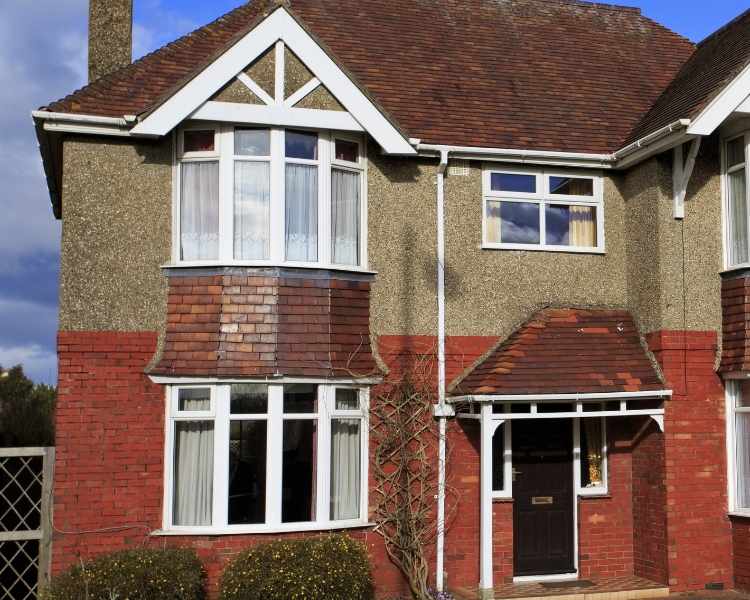
No, pebble dash is a different method, although the two are frequently confused.
Just as roughcast rendering is known as wet dash, pebble dash is known as dry dash.
This is because with wet dash the gravel is mixed in with the rest of the materials before application. In dry dashing, the cement mix is applied to the wall first and the pebbles are added to the surface afterwards. The pebbles form a visible layer on the outside (and they can't be painted!), whereas with a wet dash they are covered by the cement mix.
Both types have fallen out of favour (dry dashing more so), partly fuelled by the images of drab, grey pebbled-dashed council houses of years ago. However, wet dash has seen a revival recently as its benefits have been re-discovered and the extensive colour range makes it an attractive choice.
Although it seems like a fairly straightforward process, there's a high degree of skill involved if you want the best results and a product that lasts.
That's why MisterRender wet dash experts take great pride in each project, using their knowledge and experience to the best effect.
Here's a basic overview of what's involved:
The wall is cleaned thoroughly to remove any dirt, mould, algae and grease.
Obviously, any plant growth will have to be cleared away. If you already have old, damaged render it's best to have this stripped, although it can be covered with the new wet dash coat under certain circumstances. For several reasons, this isn't always the best option, and your MisterRender specialist will advise you as to the best course of action.
The surface is brushed down and dampened.
The first layer is called the base coat or scratch coat.
The render is applied in uniform thickness, either thrown on with a trowel by hand or using a special machine, and a tool is used to scratch the surface. This allows the next coat to adhere better. A dash receiver may be used, which is a modern silicone-based mix that adds strength and reduces the risk of cracking.
The second is applied to the same thickness as the first, taking care to ensure an even, level surface.
The top coat mix is made using grey or white cement* and clean water, fine sand, lime and small stones (you can decide the size depending on what texture you desire).
*white cement gives a brighter, cleaner appearance
The pre-mixed render is applied to create a final coat and this is sprayed with clean water to stop the sun from drying it out too quickly.
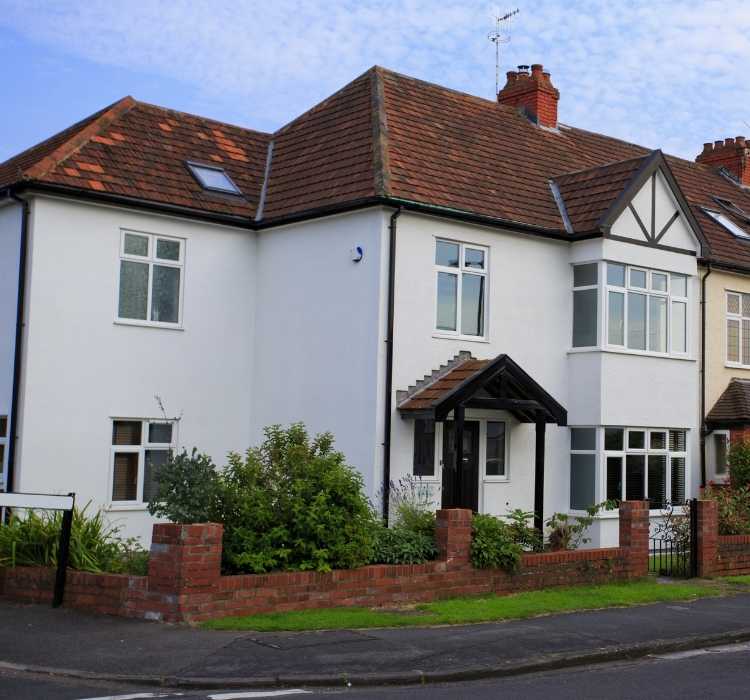

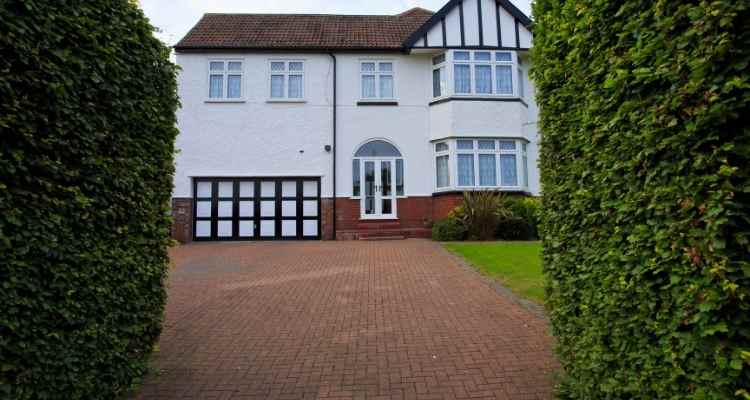
Depending on the size of the house, each job takes an average of between three and four weeks.
The finished render takes around 24 hours to dry, although weather conditions will affect this.
When properly applied, a professional coat of wet dash render will last for many decades.
It's difficult to give a precise lifespan, as this will vary depending on the severity of the weather the building is exposed to over the years.
However, a wet dash professionally installed by MisterRender stands a good chance of lasting for between twenty and thirty years, and potentially much longer.
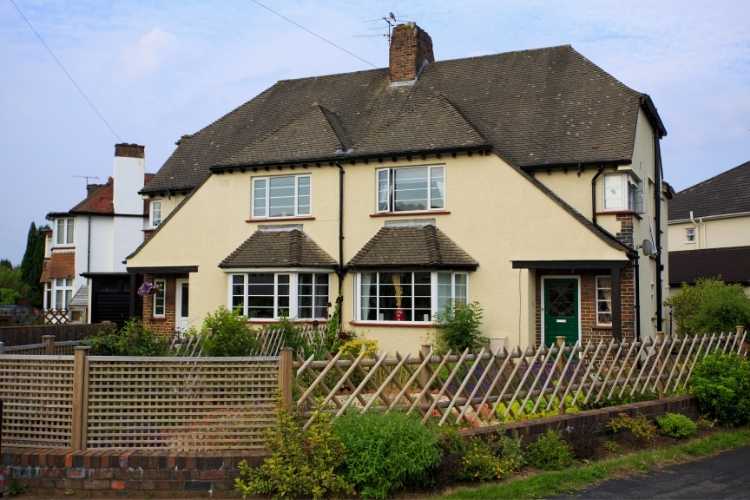
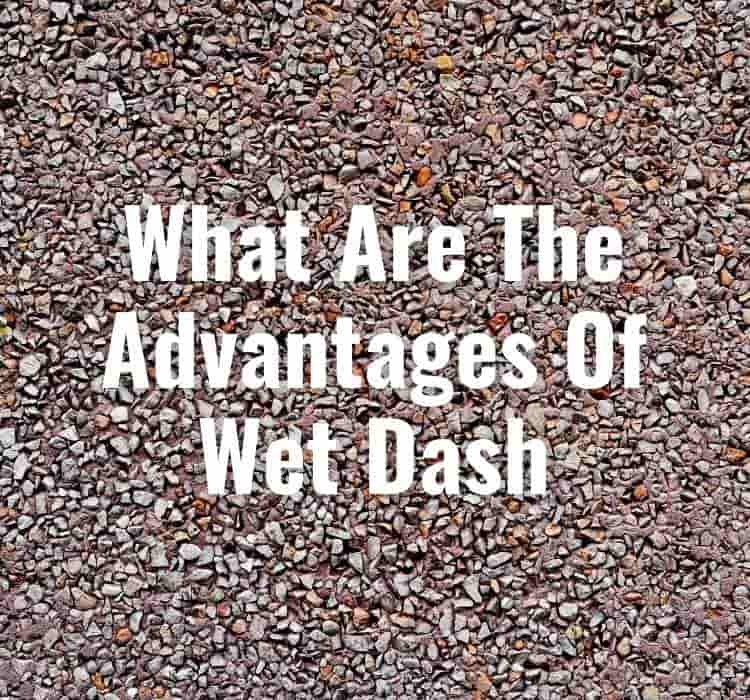
There are several benefits to this method, including the following:
Bare brick walls can be vulnerable to damage from strong sunlight and years of rain. They are not waterproof and will absorb moisture. Constant heating and cooling can cause spalling, when part of the brick crumbles and breaks away.
Frost and ice add to the problem by getting into cracks and forcing them open.
A wet dash render will provide a weatherproof shield that protects the brickwork from these harmful forces.
This render has excellent impact resistance and can withstand knocks and bumps (great news for those with kids). It really feels like it's indestructible once it has dried, and you can be confident that it will protect your walls from the worst of the weather, as well as any accidental hits.
The addition of lime means that the wall surfaces absorb carbon dioxide, which sets the mix hard. It also makes this an eco-friendly option.
Unlike dry dash, this render can be painted with a good-quality external masonry paint. This opens up more options in terms of colour, so you aren't limited to the colour of the pebbles.
Buildings in high-rainfall areas are more at risk of absorbing water, resulting in rising damp or penetrating damp. Both are bad news and may eventually compromise the building's structural integrity.
Wet dash often uses sharp granite or another type of small aggregate, and these strengthen the mix and help to repel water. In addition, a waterproofing agent can be added, and a waterproof paint applied over the finished surface.
No matter how much rainfall you get in your region, you can rest assured that your walls will be protected!
Once it's in place, wet dash won't need much attention to keep it looking great. You might want to consider repainting it after several years, but other than this you can leave it alone.
What's more, any damaged areas can be easily patched up and repaired without too much trouble. The same can't be said for most other modern render options, as the patched area is usually visible and obvious. This usually results in the entire wall having to be re-rendered to make it the same colour.
If your walls are damaged, uneven or curved, then a wet dash is an excellent choice as it forms an even, flowing surface. It will make your house look like new!
Of course, any severe damage needs proper repair, but superficial pitting and spalling can be hidden without causing any issues further down the line.
We understand that making home improvements is important to you. It has to be done right, and you want the minimum of fuss and disruption.
Whatever your questions or concerns, we're here to provide an answer or make recommendations that will help you transform your Hurworth-On-Tees home. You can discuss your project and get a quote, or simply ask for additional information.
We're here to assist you in creating your dream home.


The cement and sand mixture is put to the walls before the pebbles are adhered to them in dry dashing. The stones are mixed into the cement and sand mixture before being applied to the walls with wet dashing.
The most typical external finish found on traditional architecture in Ireland is the lime coating known as harling or wet dash. The harling material is a slurry-like mixture of aggregates and lime that is applied in a fluid condition.
It is usually white or grey in colour (depending on the cement used).
Yes, wet dash/roughcast is a good, long-lasting method of waterproofing and protecting portions of a building that are vulnerable to adverse weather.